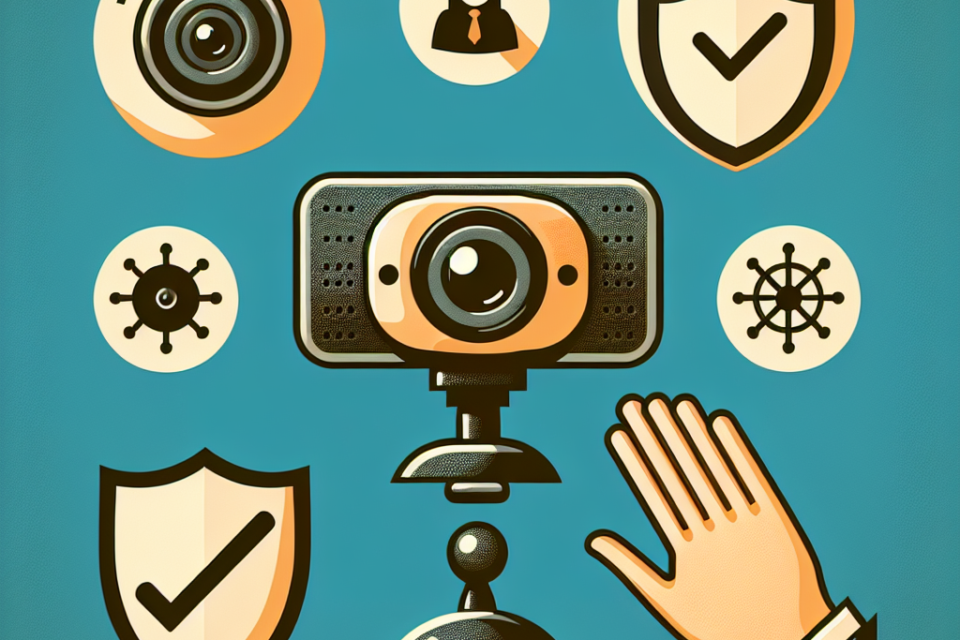How can I secure my webcam from hacking?

Introduction
In today’s digital age, protecting your personal privacy is crucial. With the increasing number of cyber threats, knowing how to secure your webcam from hacking has become essential. Webcams can be a gateway for hackers to spy on your activities and invade your privacy. Fortunately, there are several effective measures you can take to ensure your webcam remains secure. In this article, we will discuss various strategies to protect your webcam from being hacked.
Why is Webcam Security Important?
Webcam security is significant for several reasons:
- Privacy: Hackers can use your webcam to get a visual feed of your personal life.
- Identity Theft: Sensitive information can be stolen and misused.
- Cyberbullying: Recorded videos or images can be used to harass you.
- Blackmail: Hackers might use private footage for extortion.
Common Signs Your Webcam is Hacked
Knowing the signs of a hacked webcam can help you act quickly:
- Indicator Light: The webcam light is on or blinking without reason.
- Strange Files: Unknown video files appear on your computer.
- Slow Performance: Your computer runs slower than usual.
- Unusual Network Activity: Increased data usage without active application.
Table of Protective Measures
| Measure | Description |
|---|---|
| Physical Cover | Use a webcam cover or tape to block the lens when not in use. |
| Strong Passwords | Use complex and unique passwords for your computer and applications. |
| Antivirus Software | Install reputable antivirus software to detect and remove malware. |
| Software Updates | Regularly update your operating system, antivirus, and applications. |
Steps to Secure Your Webcam
1. Use a Webcam Cover
One of the simplest yet effective ways to secure your webcam is by using a physical cover. A webcam cover or even a piece of tape can block the lens and prevent unauthorized access. Ensure you remove the cover only when you need to use the webcam.
2. Update Software Regularly
Keep all software, including your operating system, antivirus program, and webcam applications, up-to-date. Updates often include security patches that fix vulnerabilities hackers can exploit.
3. Install a Reliable Antivirus Program
Invest in reputable antivirus software. These programs can detect and remove malicious software that might be trying to access your webcam. Ensure the antivirus is regularly updated.
4. Use Strong Passwords
Set strong, unique passwords for your computer and any accounts that may access your webcam. Avoid using the same password across multiple platforms and consider using a password manager to keep track of complex passwords.
5. Enable Firewall Protection
A firewall acts as a barrier between your computer and potential threats. Ensure your firewall is enabled to block unauthorized access to your system.
6. Be Cautious with Unknown Links and Attachments
Avoid clicking on suspicious links or downloading attachments from unknown sources. These could be phishing attempts to install malware on your computer.
7. Check Webcam Permissions
Review applications with permission to access your webcam. Remove permissions for apps that don’t require webcam access.
8. Regularly Monitor Your Webcam Activity
Keep an eye on your webcam indicator light. If it is on or blinking without any reason, there might be unauthorized access. Regularly check for unknown files or video recordings on your computer.
9. Use Two-Factor Authentication (2FA)
Enable two-factor authentication on accounts linked to your webcam. This adds an extra layer of security, making it harder for hackers to gain access.
10. Educate Yourself on The Latest Security Threats
Stay informed about new cybersecurity threats and best practices. Understanding the latest threats can help you take proactive measures to protect your webcam.
Conclusion
Securing your webcam is not just about using advanced security tools; it’s also about adopting good practices and being vigilant. By following the steps mentioned in this article, you can significantly reduce the risk of your webcam being hacked. Remember, your privacy is paramount, and taking steps to protect it is crucial in today’s digitally connected world.
